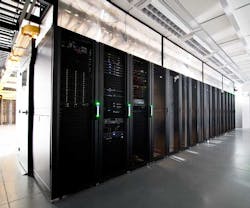Green House Data Expands to Atlanta With Cirracore Acquisition
Colocation and cloud hosting provider Green House Data continues to build its national footprint. Today the company announced the acquisition of Cirracore, an Atlanta-based infrastructure provider of Infrastructure-as-a-Service (IaaS) and hybrid cloud products.
The Cirracore deal brings Green House Data a strong presence in the Southeast, including a presence inside two Equinix facilities in Atlanta, the main data center hub for the Southeast U.S. It also adds a number of large national and international brands.
“As a high-growth market and innovation hub, Atlanta has been a target expansion market for us,” said Shawn Mills, CEO of Green House Data. “Integrating Cirracore and its management team into Green House Data will allow us to deliver a larger set of products with greater geographic diversity, ultimately to provide higher value for all of our customers, both existing and future.”
Seeking a Strategic Partner
Cirracore was founded in 2008 by Fred Tanzella, a veteran technology executive with deep experience in information security and infrastructure technology start-ups. Green House Data said Tanzella will join its executive team, citing Cirracore’s track record of beating revenue projections and maintaining an “exceptionally low customer churn rate.”
“As we entered this next phase, we looked for a strategic acquisition partner,” said Tanzella. “We’ve more than doubled our footprint in the last two years, and it was critical to my team that Cirracore’s model of enterprise-focused, VMware-based, and hyper-growth IaaS be pulled forward in any merger or acquisition scenario.”
The deal highlights the growing profile of the Southeast as a destination for data centers. CyrusOne cited a Southeast presence as a priority in its $490 million purchase of two facilities from Sentinel Data Centers, including a large wholesale data center site in North Carolina. Google has also been building its fooprint in the Southeast with several data centers in Atlanta and facilities in Alabama and Tennessee under development.
Gradual Expansion in Locations, Services
Green House Data has built its service offerings in recent years, expanding beyond its initial focus on disaster recovery and HIPAA compliance for healthcare customers. Its primary business continues to be retail colocation, but it now offers a suite of “as a service” cloud offerings and managed services, with an emphasis on support.
Green House Data launched with a 10,000 square foot data center in Cheyenne, supported by wind energy and the Wyoming climate, which is well suited to “free” cooling, which takes advantage of cool outside temperatures to keep servers cool. In 2013, the company teamed with 1547 Realty to build a second, larger data center on adjacent land. In those early years, the business focused on local customers and disaster recovery for out-of-region clients.
In 2012, Green House Data added locations on both coasts, leasing space in Piscataway, New Jersey for its East Coast presence, and opening a new West Coast facility in Portland, Oregon. It expanded its footprint in the New York market in 2014, again teaming with 1547 Realty on a project in Orangeburg, New York, about 25 miles north of Manhattan.
In 2015, Green House Data acquired FiberCloud, gaining three data centers in Washington state, including a presence in the Westin Building, Seattle’s primary carrier hotel.
“We’re thrilled to bring yet another location into our portfolio, and have Fred’s leadership and vision added to our team,” said Mills. “It’s an exciting time for both of our companies, and the industry as a whole.”
About the Author



